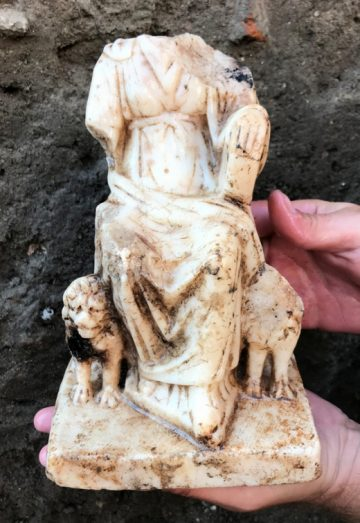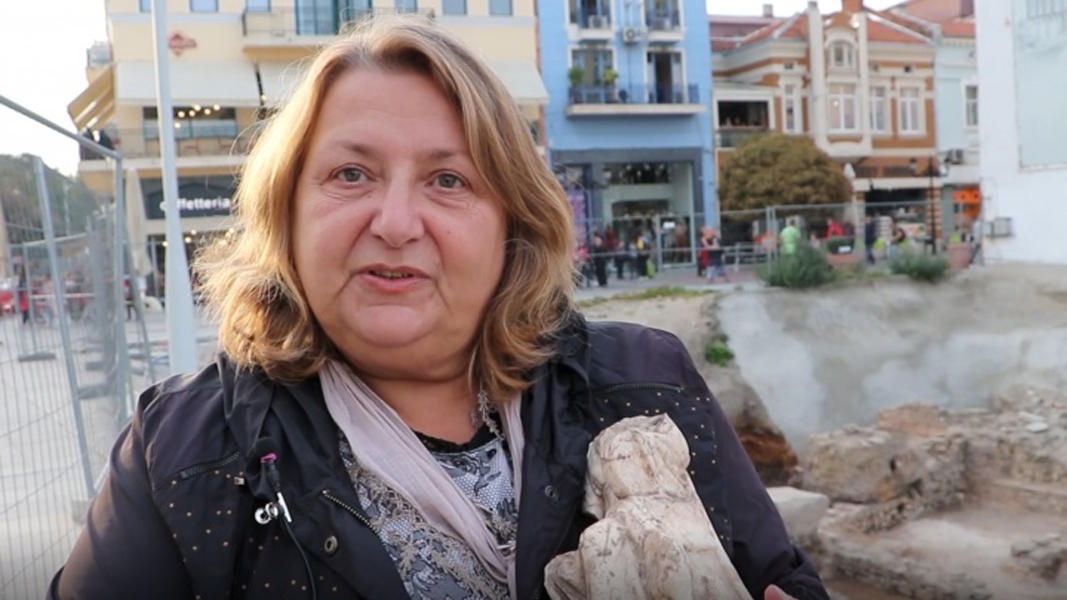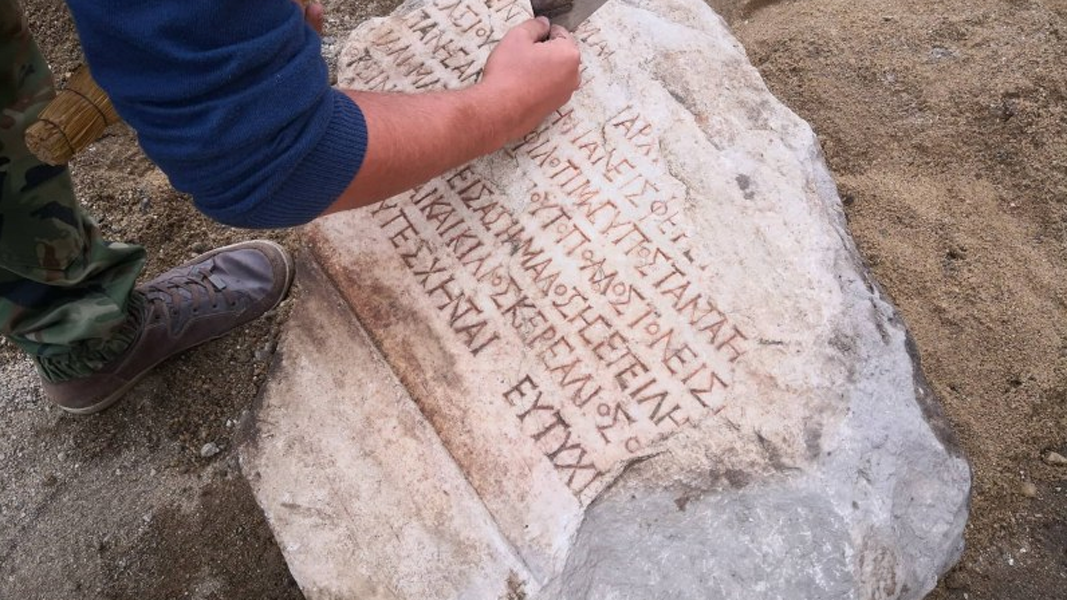 Another archaeological discovery has been recently made in the center of Plovdiv – a marble statuette of the goddess Cybele. The “North Forum” where the ancient statuette was found has been studied since 1986 and represents the heart of the ancient city. It is the largest antique square in Bulgaria and one of the largest in the Balkans. Its total area is over two thousand square meters and this year researchers have explored about 250 square meters of them. The northern part of the Agora – the city square of Philippopolis, as well as a complex of public buildings have been unearthed. There, in antiquity, the people of Philippopolis participated in political and religious events and merchants offered their goods.
Another archaeological discovery has been recently made in the center of Plovdiv – a marble statuette of the goddess Cybele. The “North Forum” where the ancient statuette was found has been studied since 1986 and represents the heart of the ancient city. It is the largest antique square in Bulgaria and one of the largest in the Balkans. Its total area is over two thousand square meters and this year researchers have explored about 250 square meters of them. The northern part of the Agora – the city square of Philippopolis, as well as a complex of public buildings have been unearthed. There, in antiquity, the people of Philippopolis participated in political and religious events and merchants offered their goods.
The Cybele statuette was discovered in a late antiquity layer from the beginning of the 4th century when Christianity was established as a religion in the Balkans and all pagan symbols were destroyed. According to head of the archaeological works Maya Martinova, that is why the statuette was burnt and broken:

"It is made of marble with traditional iconography. Cybele is seated on a throne surrounded by two lions, holding a drum in her left hand. The statuette is dated to the end of 2-3 century and the craftsman’s work is exquisite. Initially, Cybele was a Phrygian primal nature goddess. She was revered mainly in Asia Minor. Through the Greek colonies, the cult also penetrated our lands. In the Roman imperial era, the goddess was already revered as protector of the well-being of cities and the whole country. We associate this cult mainly with the Phrygian settlers in Philippopolis, whose presence is documented."
The Cybele statuette is not the only significant discovery that archeologists made in Plovdiv in 2019. An ancient Greek marble plaque has also been found. The inscription on it is part of an imperial letter that was displayed in the northern, most representative part of the city square of Philippopolis in order to make it accessible to all. Maya Martinova told us about its importance:

“This letter was written in response to a request on behalf of the city or union of Thracian cities. From the text it becomes clear that the letter is related to a specific case, checked by two envoys. The text is not complete and it is not very clear what the case was, but it does mention a fine that had to be paid. The end of the letter refers to a citizen, apparently of high social status, who was to pay the fine. The inscription is dated from the end of the second, the beginning of the 3rd century AD. Unfortunately, the name of the emperor has not been preserved, but according to Nikolai Sharankov, the plaque is linked to Emperor Septimius Severus, who imposed a fine on the city, because in the competition for the imperial throne, Philipopolis supported his opponent Pescennius Niger."
Archaeologists are currently exploring a layer from the Roman era. They have yet to document the four major stages in the construction of the Philippopolis agora, which are characterized by changes in the parameters of the open space and changes in the decoration. "For example, the earliest colonnade is characterized by Doric-style and made of yellowish tuff. Later Roman-Corinthian architectural designs were made of marble. We will be happy to find more monuments and inscriptions, because these are findings of great scientific value," Maya Martinova says in conclusion.
English: Alexander Markov
Photos and video: archaeologia-bulgarica.comOn 19 October 2025, the day on which Orthodox Bulgarians commemorate St Ivan Rilski the Miracle-Worker, the newly renovated St Ivan Rilski Church in Chicago will officially reopen its doors. Named after Bulgaria’s heavenly patron , the church will host..
Archaeologist Nikolay Ovcharov on Thursday announced the discovery of a large circular temple at Perperikon, the early-historic rock complex in the Eastern Rhodopes, BTA reported. Dating to the 3rd–4th centuries AD , the structure is believed to..
This summer, archaeologists once again breathed life into the legends woven into the rocks of Kaliakra . Among the ruins of the once majestic fortress above the Black Sea, over 400 artefacts were discovered, shedding new light on..

+359 2 9336 661
